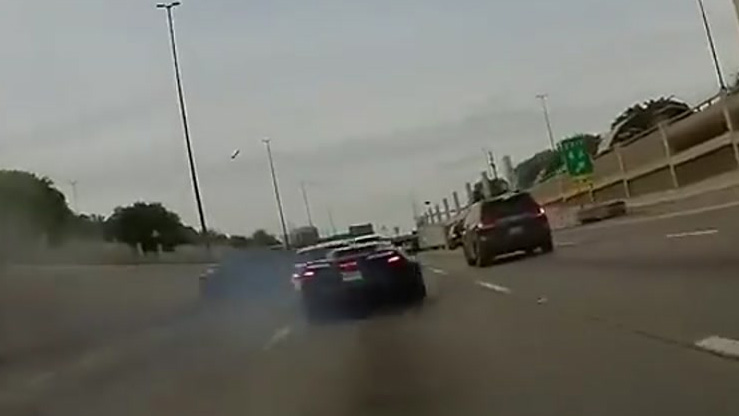The Fort Worth Police Department now has a tough policy aimed at preventing crashes caused by police officers typing messages on their dashboard computers while driving.
An NBC 5 investigation has uncovered that distractions lead to frequent police crashes across North Texas.
Fort Worth's new policy says in part: "Officers shall not type on the MDC (mobile data computer) when the vehicle is in motion unless an exigent circumstance exists requiring immediate action."
"They're going to get the message that, when they are driving that vehicle, their focus is on arriving at their destination," Police Chief Jeffrey Halstead said. "This is an information source -- and it will be working as they're commuting -- but they cannot distract vision to this operational piece of technology."
Get DFW local news, weather forecasts and entertainment stories to your inbox. Sign up for NBC DFW newsletters.
The policy still gives officers some flexibility. Officers can still key in a one-touch response showing that they are in route to a call, arriving on the scene or have an emergency. But if they need to type anything more than that, they have to pull over.
The key was balancing the benefits of the computers with the risks, Halstead said.
Fort Worth police training has always encouraged officers to avoid typing and driving, but the department didn't have a written policy to back it up until now.
Local
The latest news from around North Texas.
Halstead said he believes it's very important to have a policy in place that reflects what officers are told in training.
"We go to a class or a safety class or something, we are very, very good students immediately after the class, and then we slowly get back in our habits," he said.
According to new records obtained by the NBC 5 Investigates team, Fort Worth police had 15 crashes caused by all kinds of distractions inside police cars in the last three years.
Halstead said he personally has seen computers causing distractions.
"I saw officers that I know were distracted -- because they don't know who I am sitting next to them at a traffic light -- and they're in the police car that I'm the chief of," he said.
The chief said he wishes the policy had been ready this summer when NBC 5 broadcast the first part of its investigation in July.
"I was a little frustrated in myself, because we weren't done with our policy and I was really proud of staff work on that and, if it had come out a few weeks later, we would have had it done," he said. "But it actually reminded us how important this issue is."
In July, NBC 5 Investigates discovered that a number of cities -- including Fort Worth -- did not have a policy in place to prevent officers from typing and driving, despite crashes across the state. NBC 5 Investigates had requested an interview with the Fort Worth Police Department, but it declined talk on camera at the time, saying in a statement that it was reviewing its policy on computers and driving.
Fort Worth Mayor Betsy Price told NBC 5 Investigates in July that said she planned to raise the issue with the police chief.
"We will ask not only the chief, but we will ask everybody to take a look and at least be aware that there have been areas of concern in other parts of the state [and] to a look at where they are and see if they're still comfortable with it," she said.
Today, the mayor said she is happy with the chief's decision to tighten the rules.
"It's a pretty hard-hitting policy," she said. "It's all about safety for our citizens and for our officers both. We want them to not be distracted, and we want them to be as safe as possible on the streets."
In recent weeks, Fort Worth police hosted a training called "Beyond the Cones" that focused on avoiding distractions in police cars, including typing and driving.
"And just because you've done it once, twice, maybe a hundred times, doesn't mean you can do it with any success," said Keith Wenzel, of LifeLine, the national organization that conducted the training. "It just means you've been lucky so far."
Fort Worth hopes its policy can be a model for other cities.
"There's many agencies across the country that may see this story, and I compliment you do doing it, because now they can turn to us and ask, 'Can we look at your police? Can we find out how you did this?' And we're happy to assist them," Halstead said.
NBC 5's Eva Parks, Peter Hull and Shane Allen contributed to this report.



